Wisdom Tooth Extractions – Haverhill, MA
Saving Smiles from Troublesome Teeth

We generally try to help our patients preserve all of their natural teeth here at Associates in Dental Health of Haverhill, but wisdom teeth are the exception. These teeth, also called third molars, can cause more harm than good if they aren’t removed. If you’ve been experiencing pain toward the back of your mouth or jaw, you might need wisdom tooth extractions in Haverhill, MA. Call us today to learn more about how our dentists can save your smile from these troublesome teeth!
Why Choose Associates in Dental Health of Haverhill for Wisdom Tooth Extractions?
- Calming Oral Conscious Sedation Available
- Same-Day & Walk-In Emergency Visits
- Patients of All Ages Welcome
What Are Wisdom Teeth?

The wisdom teeth emerge behind all of the other molars, usually in early adulthood. Most people have four of these teeth, but some people only have one, two, three, or even none. The third molars benefitted our ancient ancestors, as they were vital in chewing tough foods. However, our modern diet has softened foods to the point where most people don’t need their wisdom teeth anymore.
Why Do Wisdom Teeth Need to Be Removed?

While some people never experience issues with their wisdom teeth, they can pose a real threat to many people’s oral health if they aren’t extracted in a timely manner. Today, the jaw often isn’t wide enough to accommodate these extra teeth, so they can end up pushing against the other teeth and causing misalignment. The wisdom teeth might even have trouble erupting past the gumline. This is known as impacted wisdom teeth, which can significantly increase the risk of oral infection and pain.
What to Expect from the Wisdom Teeth Procedure
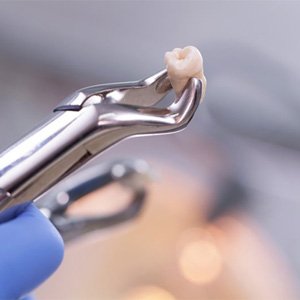
The first step in any wisdom tooth extraction is making sure you’re comfortable. Our team will utilize local anesthesia to numb your mouth, and we even offer oral conscious sedation to help you relax and put your mind at ease before beginning the procedure.
If the wisdom teeth have already emerged past the gumline, the process is similar to any other tooth extraction . We grasp the tooth with a dental forceps and carefully rock it back and forth until it breaks free of the gum tissue. However, if the wisdom teeth are impacted (stuck underneath the gums), we’ll likely need to take additional steps, such as making incisions in the tissue to access the other sections of the teeth.
Recovering from Wisdom Teeth Extraction

For the first two or three days after getting your wisdom teeth removed, it’s normal to experience swelling and pain, but it can easily be managed. We’ll advise you on how to take pain medication (whether we’ve prescribed any or recommended any over-the-counter solutions). Holding a cold compress to the outside of your cheek in ten-minute intervals can also cut down on discomfort.
You’ll want to avoid disturbing the blood clots forming over the extraction site, so don’t drink from a straw or smoke. Additionally, follow a soft food diet to prevent your gums from being subjected to excessive chewing pressure.
Of course, if you have any questions about wisdom tooth recovery, don’t hesitate to reach out to our team!
Understanding the Cost of Wisdom Tooth Extractions
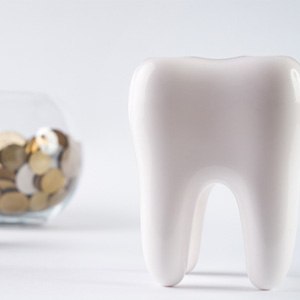
Wisdom teeth extractions are important, but patients rarely get excited about them. That goes double for the price of the procedure, which may add even more anxiety to an already stressful situation.
Thankfully, we make every part of the procedure as stress-free as possible for our patients, including payment. We’ll be happy to give you a full estimate of what your treatment should cost beforehand and will review financing options with you. Until then, here’s what should know about budgeting for treatment.
Factors That Can Impact the Cost of Wisdom Tooth Extractions
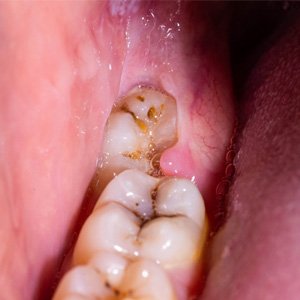
There are quite a few variables that can affect the cost of your wisdom tooth treatment, which is why it’s not really possible to tell you what yours would cost until we meet you in person.
First of all, the number of wisdom teeth is a major variable—not everyone has all four of them. The state of your wisdom teeth is also important to think about, as impacted teeth will take extra care to remove, and therefore incur greater costs. In the case of more complicated extractions, you may even need to consult with a specialist, who will usually have their own rates for surgery.
Finally, most people are interested in getting some type of anesthesia or sedation during the wisdom tooth treatment, which you will also need to budget for.
Does Dental Insurance Cover Wisdom Tooth Extractions?

This varies from plan to plan. Not every insurance company offers a cutout for dental surgery, but most of them will be willing to pay for at least a portion of a wisdom tooth extraction. Of course, this depends on whether you’ve met your deductible or if you’ve already exceeded your yearly maximum.
Other Options for Making Wisdom Tooth Extractions Affordable
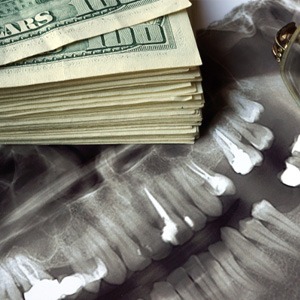
Even if you don’t have insurance, we have financing options available to you that can make it possible to get the care you need, even on a budget. We accept payment through the Wells Fargo Health Advantage Credit Card, Care Credit, and Lending Club. Each of these can allow you to break the cost of care into affordable monthly payments, making a wisdom tooth extraction affordable for anyone.
Wisdom Tooth Extractions FAQs
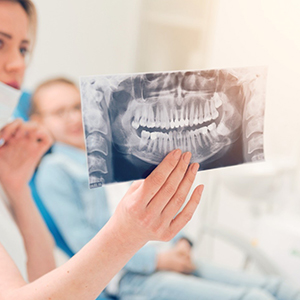
We understand that you might feel a little hesitant about your upcoming wisdom tooth extractions in Haverhill. Our team here at Associates in Dental Health of Haverhill is ready to step in to provide assistance and ease your doubts. We’ve gathered a few of the most frequently asked questions that we receive about wisdom tooth extractions so that you can feel confident about putting your oral health first and committing to the procedure. If you have any other questions about wisdom tooth extractions or would like to schedule a consultation, feel free to give us a call today.
Why Do We Have Wisdom Teeth?
It’s true that most people don’t need their wisdom teeth these days, but believe it or not, the teeth actually used to serve a very important purpose for our ancestors. Early humans ate a very coarse diet that consisted of several raw and/or difficult-to-chew foods like meats, roots, nuts, berries, and other earthy items. They also didn’t cook or prepare their food the same way we do today, meaning they needed an extra set of molars to assist with chewing. But since food today is generally softer and easier to eat, wisdom teeth aren’t really necessary anymore, and our jawbones have evolved to typically not have enough room for them once they erupt.
Does Wisdom Tooth Removal Hurt?
The very first thing we’ll do during your wisdom tooth surgery is numb your mouth with a local anesthetic, so pain should be the least of your worries! You might feel some slight pressure during the actual procedure, but it shouldn’t be outright painful. Some patients also experience minor soreness or discomfort following wisdom tooth surgery, but as long as you follow your aftercare guidelines, this discomfort can be dynamically minimized, and you’ll feel back to normal within about a week.
How Should I Prepare for My Wisdom Tooth Extraction?
Although it’s a fairly common procedure, wisdom tooth extraction isn’t something you should take lightly. However, there are many things you can do to ensure that you’re adequately prepared:
- Arrange to have someone drive you to and from the appointment, as you won’t be fit to drive after receiving anesthesia. You should also ask them to keep an eye on you for a few hours following the procedure.
- Be prepared to let us know what prescribed and over-the-counter medications you take, if any, to avoid unwanted interactions.
- If you’re receiving general anesthesia, you’ll need to avoid eating or drinking after midnight the night before your procedure.
- Refrain from smoking for at least 12 hours before the procedure.
- Consider wearing comfortable clothing to your appointment. If you’re receiving IV sedation, wear a shirt with sleeves that are easy to roll up.
- Stock your fridge and pantry full of soft foods and liquids; you’re going to need them while your mouth heals up!
What Can I Eat After Wisdom Tooth Surgery?
As with any type of oral surgery, maintaining the right diet after wisdom tooth surgery is crucial to making a quick and seamless recovery. You’ll be instructed to stick to a liquid diet on the first day (without using straws) and eat soft foods for a few days following that. After about four or five days, you can gradually start to add heartier foods into your diet as you feel comfortable. You should stay hydrated with water and eat plenty of soft, nutritious foods such as yogurt, applesauce, cottage cheese, pudding, smoothies, mashed potatoes, scrambled eggs, and thin soups and broths that aren’t too hot. Avoid foods that are particularly hard or crunchy, as well as foods with small sharp pieces. Spicy foods might also cause gum irritation. Keep in mind that if you eat anything that requires chewing while your mouth is still numb, you might actually bite your tongue, lip, or cheek!
